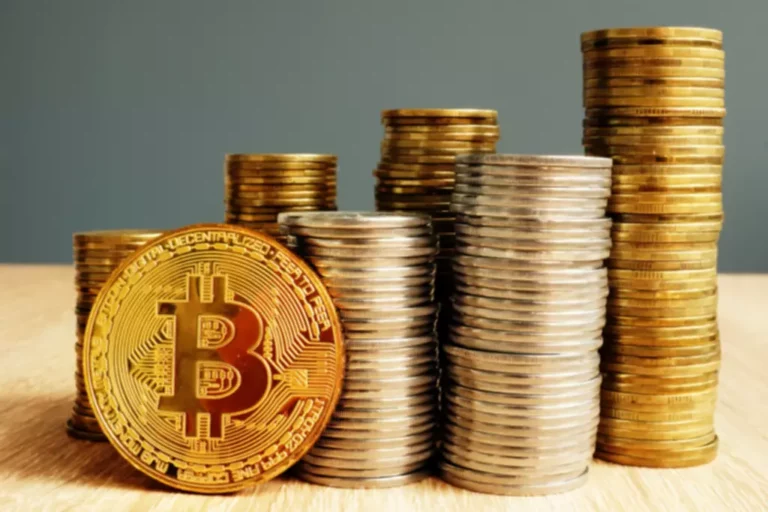Implications Of The Volcker Rule For Overseas Banking Entities Global Regulation Firm
The objective of the Volcker Rule is to stop all proprietary buying and selling (which is outlined quite broadly) by industrial banks (such as HSBC) i.e. to stop any dangerous buying and selling by banking institutions that has no benefit to its customers. It additionally seeks to prevent the requirements being by-passed by ownership/investment in hedge funds or personal equity funds. The Volcker Rule is meant to restrict high-risk, speculative buying and selling exercise by banks, similar to proprietary trading or investing in or sponsoring hedge funds or personal equity funds. It maintains banks’ talents to offer important customer-oriented monetary services, corresponding to underwriting, market making, and asset management companies. The Volcker Rule is a federal regulation that typically prohibits banks from conducting sure investment activities with their very own accounts and limits their dealings with hedge funds and private fairness funds, additionally known as lined funds.

The foregoing exemption supplies a weak parallel to the complete exemption under the us securities laws for U.S. sovereign, political subdivision (including municipal) and company securities by any banking entity. The Volcker Rule does apply to every overseas entity that immediately or not directly maintains a bank branch or company in the United States, or controls a commercial lending company. It also applies to an entity’s affiliates and subsidiaries, which are defined as companies an entity controls through possession or management of 25% or higher, direct or indirect, voting power of any class of voting securities of the company or through other indicia of “control” as defined within the Bank Holding Company Act of 1956, as amended. Commercial banks are allowed to supply varied services similar to hedging, market making, underwriting, and insurance services, in addition to acting as brokers, brokers, or custodians.
The final rule prohibits banks from participating in short-term proprietary trading of sure securities, derivatives, commodity futures and choices on these devices, for their own account. The last rule also imposes limits on banks’ investments in, and other relationships with, hedge funds or non-public fairness funds. The last rule offers exemptions for sure actions, including market making, underwriting, hedging, trading in government obligations, insurance firm actions, and organizing and offering hedge funds or private fairness funds. The ultimate rule also clarifies that sure actions usually are not prohibited, together with acting as agent, dealer, or custodian.
Recent Developments Within The Volcker Rule
However, the banks are only allowed to supply the companies to their shoppers and not interact within the actions immediately. The Volcker proposal aimed at separating the business banking and investment banking divisions of banks. The proposal was endorsed by President Barack Obama, and it was included within the 2010 Congress proposal that beneficial an overhaul of the monetary trade. However, in December 2014, the Federal Reserve Board granted extensions to banks to get out of those positions until 2017, and until 2022 in some instances. Any banking entity topic to those reporting requirements should create and retain information documenting the preparation and content material of each report, in addition to the information essential to allow a regulator to verify the accuracy of such data in the report for a interval of 5 years. United States authorities bonds are thought of low-risk investments that industrial banks can buy and promote since they are backed by the federal government.
After the disaster, financial regulators in the united states and across the globe tried to bring again a number of the separations between funding and industrial banking. Since its enactment, the Volcker Rule has faced quite lots of critiques, particularly about its results on limiting capital and limiting financial institution https://www.xcritical.in/ profits. As a outcome, the Economic Growth, Regulatory Relief, and Consumer Protection Act of 2018 (EGRRCPA) loosened lots of the restrictions of the Volcker Rule. Essentially, it prohibits banks from using their own accounts (customer funds) for short-term proprietary trading of securities, derivatives, and commodity futures, in addition to choices on any of these instruments.
Before the 2008 monetary crisis, banks engaged in speculative buying and selling utilizing their depositors’ accounts, which led to the collapse of a quantity of banks and loss of depositor funds. The rule was preceded by the Glass-Steagall Act of 1933, which was launched during the Great Depression. The proposed definition of “distribution” mirrored the definition used within the SEC’s Regulation M beneath the Exchange Act and took under consideration the magnitude of the offering and the presence of particular selling efforts and selling strategies. The Agencies decided in the final Volcker Rule that the requirement to have special promoting efforts and promoting strategies was sufficient to tell apart between permissible securities choices and prohibited proprietary trading, and that the additional magnitude factor was not wanted to further this objective.
Extension Of Deadlines For Compliance
On December 10, 2013, the Office of the Comptroller of the Currency (“OCC”), the Board of Governors of the Federal Reserve System (“Board”), the Federal Deposit Insurance Corporation, the U.S. Commodity Futures Trading Commission issued ultimate laws to implement section 619 of the Dodd-Frank Wall Street Reform and Consumer Protection Act, known as the Volcker Rule. The final rules have been published within the Federal Register on January 31, 2014, and have become efficient on April 1, 2014. For functions of this Advisory, the time period “foreign” is used to mean “non-U.S.” Although we perceive that it is a relative term, we’ve used this terminology to correspond with the language of the ultimate rule. This course will cowl critical economic rules that influence financial markets quite than worry about micro/macro principle. We will introduce financial events and cover tips on how to differentiate between financial releases and financial indicators.
A trading account can typically be contrasted with an funding account that is maintained for long term appreciation. If a banking entity calculates risk-based capital ratios under the market risk capital rule, trading of financial devices that are both market risk capital lined positions and buying and selling positions (or associated hedges) represent proprietary trading. Banks are prohibited from partaking in proprietary trading activities and from proudly owning curiosity in coated funds, usually outlined as hedge funds and private fairness funds. The rule is listed in Section 619 of the Dodd-Frank Act, and is a part of the larger financial reforms contained in that legislation. The prohibition in opposition to proprietary buying and selling applies not only to banks themselves but additionally to bank holding companies.
Xxviii Volcker Rule
Banking entities with whole consolidated assets of $50 billion or more (or a foreign banking entity with whole U.S. consolidated belongings of $50 billion or more) are topic to enhanced compliance necessities. Banking entities that do not interact in any Volcker Rule lined actions usually are not required to determine a Volcker Rule compliance program. Each banking entity is required to develop and maintain a compliance program “reasonably designed to ensure and monitor compliance” with the proprietary buying and selling and covered fund restrictions of the Volcker Rule. Rather than adopting a “one measurement fits all” approach, the phrases, scope and detail of the compliance program should be tailor-made to the activities and business structure of the banking entity. A banking entity’s total consolidated belongings are a determinative think about the sort of compliance program it’s required to undertake.
Instead, the PRA was required to evaluation the case for further restrictions on proprietary trading within a year of the graduation of ring-fencing. The evaluation may then be told by the experience of other international locations that had taken different approaches to the problem. It discusses the extent of this activity, the risks it poses to the security and soundness of companies, the instruments the PRA has to mitigate these risks, and the experience of other international locations in limiting proprietary buying and selling inside the banking sector. It also addresses whether the ring-fencing regime, along with the opposite instruments out there to the PRA, are sufficient to mitigate the dangers proprietary buying and selling poses to monetary stability and the security and soundness of companies.
One main source of this danger concerned banking institutions conducting proprietary investments in numerous kinds of funds, pooled property, and different dangerous, high-profit investments. Until legislative efforts in the Nineteen Nineties to repeal the Glass-Steagall Act, investment banking and business banking was required to be separated from one another. This prevented the type of mixture between consumer deposits and risky investments that contributed to the GFC.
- In 2018, the Federal Reserve Board, the Office of the Comptroller of the Currency, the Federal Deposit Insurance Corporation, the Securities and Exchange Commission, and the Commodity Futures Trading Commission proposed adjustments to the rule that would loosen a few of its restrictions on banks’ buying and selling actions.
- Sponsored by Sen. Carter Glass, a former Treasury secretary, and Rep. Henry Steagall, chair of the House Banking and Currency Committee, it prohibited business banks from taking part in the funding banking enterprise and vice versa.
- Next, we will do a quick refresher on central banks and financial coverage before we dive into specific examples such as the Federal Reserve (the Fed), European Central Bank (ECB), Bank of England, and Bank of Japan, and focus on these establishments and their policies in detail.
- For purposes of this Advisory, the term “foreign” is used to mean “non-U.S.” Although we understand that this can be a relative time period, we’ve used this terminology to correspond with the language of the final rule.
- All such transactions are required to be entered into on terms that are comparable to those entered into with unaffiliated entities.
The rule permits for some exceptions for underwriting, market making activities, risk-mitigating hedging, U.S. authorities and limited international authorities obligations, and investing in international banking institutions. The exceptions in many circumstances require reporting and explanations for the applicability of the exceptions. Also, in all circumstances, the buying and selling must not involve overly dangerous activity and must not create a battle of curiosity. The Volcker Rule additionally bars banks, or insured depository establishments, from acquiring or retaining possession interests in hedge funds or private equity funds, topic to sure exemptions. In other words, the rule aims to discourage banks from taking an extreme amount of risk by barring them from utilizing their very own funds to make these types of investments to increase earnings. The Volcker Rule relies on the premise that these speculative trading activities don’t benefit banks’ customers.
The rule’s origins date back to 2009, when Volcker proposed a chunk of regulation in response to the continuing monetary crisis (and after the nation’s largest banks amassed large losses from their proprietary buying and selling arms) that aimed to prohibit banks from speculating within the markets. Volcker ultimately hoped to reestablish the divide between commercial banking and funding banking—a division that when existed however was legally dissolved by a partial repeal of the Glass-Steagall Act in 1999. Named after former Federal Reserve Chairman Paul Volcker, the Volcker Rule disallows short-term proprietary trading of securities, derivatives, commodity futures and options on these devices for banks’ personal accounts under the premise that these actions don’t profit banks’ clients.
Volcker finally hoped to reestablish the divide between business banking and investment banking—a division that when existed but was legally dissolved by a partial repeal of the Glass-Steagall Act in 1999. The Volcker Rule goals to guard bank clients by stopping banks from ensuring forms of speculative investments that contributed to the 2007–2008 financial crisis. Essentially, it prohibits banks from utilizing their own accounts for short-term proprietary buying and selling of securities, derivatives, and commodity futures, as well as options on any of those instruments.

Simply put, the bill’s proponents argued that banks had a fiduciary responsibility to guard these belongings and not to interact in excessively speculative activity. The Fed’s Finance and Economics Discussion Series (FEDS) made a similar argument, saying that the Volcker Rule will cut back liquidity due to a reduction in banks’ market-making actions. Furthermore, in October 2017, a Reuters report revealed that the European Union (EU) had scrapped a drafted legislation that many characterized as Europe’s answer to the Volcker Rule, citing no foreseeable settlement in sight. Meanwhile, a number of stories have cited a lighter-than-expected impression on the revenues of big banks within the years following the rule’s enactment—although ongoing developments in the rule’s implementation could affect future operations.

Although not part of then-President Barack Obama’s authentic proposal for monetary overhaul, the Volcker Rule was endorsed by Obama and added to the proposal by Congress in January 2010. The Volcker Rule is called after economist and former Federal Reserve (Fed) Chair Paul Volcker, who died on Dec. eight, 2019, at age 92. The Volcker Rule refers to part 619 of the Dodd-Frank Wall Street Reform and Consumer Protection Act of 2010, which sets forth rules for implementing section thirteen of the Bank Holding Company Act of 1956.

Lascia un commento